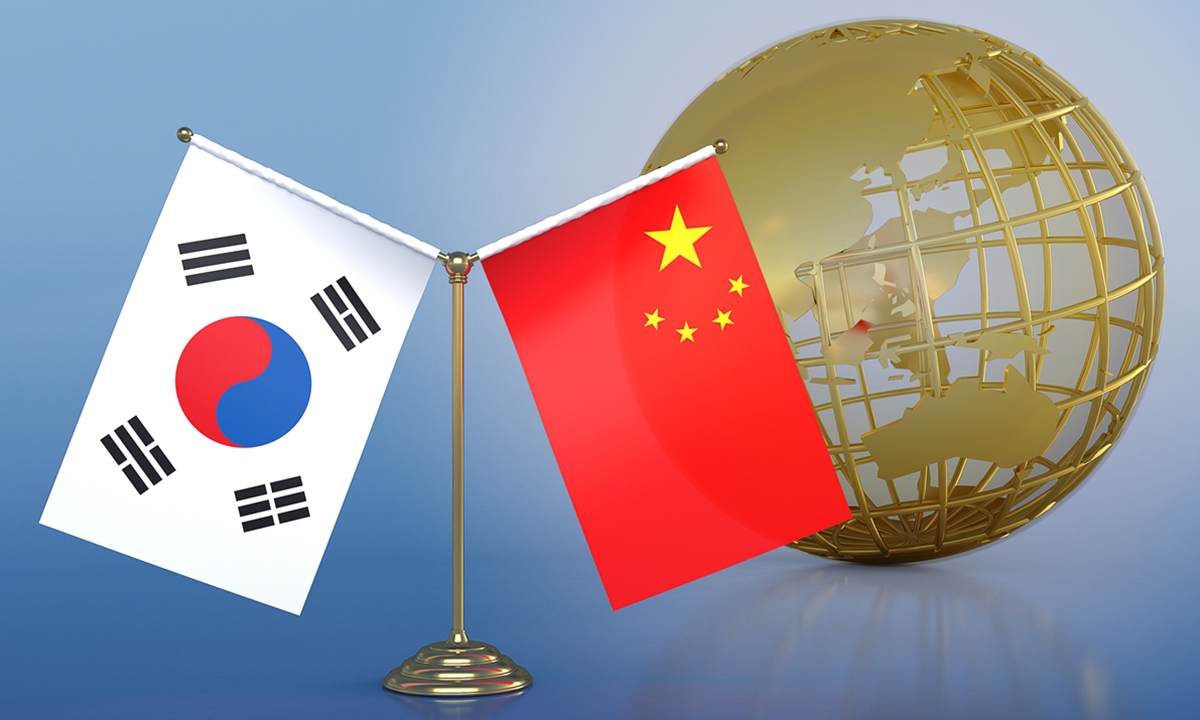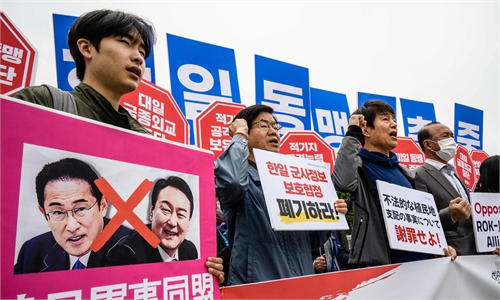
China South Korea Photo:VCG
South Korean Foreign Minister Park Jin on Wednesday announced plans to meet with Chinese State Councilor and Foreign Minister Qin Gang soon after consultations between the two countries, against the backdrop of growing criticism against South Korea's overwhelming pro-US policy.
Chinese analysts urged Seoul to regain balance in foreign policy and think with long-term strategic vision, as the current one-sided diplomacy with the US and Japan will erode South Korean interests.
Park made the announcement at a plenary meeting of the National Assembly Foreign Affairs and Unification Committee, where he also hinted at activating channels between South Korea's National Security Council and the corresponding authorities of China.
Dong Xiangrong, a senior fellow at the National Institute of International Strategy at the Chinese Academy of Social Sciences, told the Global Times on Thursday that China and South Korea are important neighbors and trading partners. However, bilateral exchanges have been greatly disrupted since the COVID pandemic, especially high-level interactions, with their frequency and level becoming disproportionate to the importance of bilateral relations, Dong said.
Communication is critical for China and South Korea to solve current bilateral problems and create opportunities for the relationship to improve, analysts said.
Park said at a Tuesday forum that South Korea seeks a "healthy and mature" relationship with China that is based on "mutual respect," suggesting that the two countries could still find common ground despite deepening tensions between Seoul's main ally Washington and Beijing.
South Korean President Yoon Suk-yeol recently attended the Group of Seven (G7) summit in Hiroshima as an observer. The G7 communiqué and other documents hyped China-related topics including the highly sensitive Taiwan question, triggering strong opposition from China.
On Monday, Director-General of the Department of Asian Affairs of the Foreign Ministry of China Liu Jinsong held diplomatic consultations in Seoul with Choi Yong-jun, Director-General of the Northeast Asian Affairs Bureau of South Korean Foreign Ministry. Liu put forward China's solemn positions on its core concerns and exchanged views with South Korea on other matters.
Seoul's inclination toward Washington and Tokyo has also prompted opposition domestically. Yoo Seong-min, a former member of the South Korean Parliament, wrote on social media that the Yoon administration should come up with a China strategy and ensure economic ties with the country, citing European countries' and Australia's engagement with China, Aju News reported.
Former intelligence chief Park Jie-won criticized Yoon's "one-sided" diplomacy with the US and Japan, saying it is killing South Korea's economy, and emphasized the necessity of developing relations with China.
By tilting toward the US too much, South Korea's balance in foreign policy has been broken and its values-based diplomacy is actually putting some countries on the opposite path, narrowing South Korea's strategic space and intensifying international division, Dong Xiangrong said.
Dong called on the Yoon administration, particularly the security and diplomatic teams, to recognize that an excessive pro-US and pro-Japan stance on certain issues is hurting South Korean interests, as the US woos allies only to better implement its "America first" policy.


